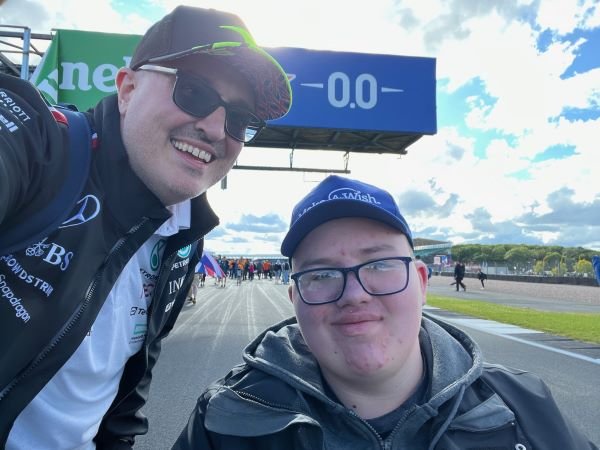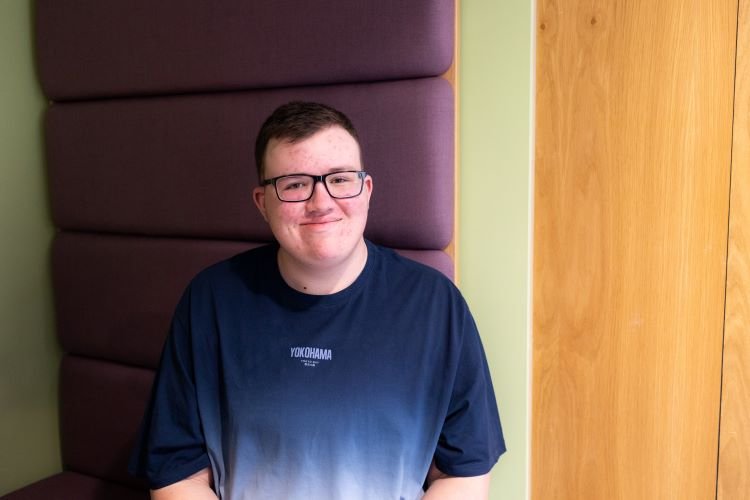A member of Cambridge Children's Youth Forum, who was diagnosed with a rare brain tumour in 2020, has taken part in research about how the pandemic impacted children like him.

Luke from Stevenage was part of a study funded by children's charity Action Medical Research (opens in a new tab) which shed light on how the pandemic affected the diagnosis, treatment and experiences of children and young people diagnosed with a brain tumour.
The 18-year-old, who is Vice Chair of the Cambridge Children's Youth Forum, is determined to improve hospital experiences for future generations of poorly children.
He took part in a study, led by Dr Ibrahim Jalloh from Cambridge University Hospitals NHS Foundation Trust (CUH) and Professor Rachel Isba of Lancaster University. The research found that while medical outcomes for children with brain tumours did not appear to be significantly altered by the pandemic, the emotional and practical toll was profound – resulting in additional stress to an already life-changing diagnosis.
Luke’s symptoms – headaches, fatigue and double vision – began in 2019, but Covid-19 restrictions meant that several appointments were delayed or cancelled. By the time swelling was detected on his optic canal, Luke urgently needed surgery.

Luke’s dad, Peter, said: “Luke went through a life-changing diagnosis and treatment journey during the unprecedented Covid-19 outbreak. We are so grateful for the support we received, but it was challenging and isolating due to restrictions imposed by the pandemic."
"Research that aims to better understand the impact of widespread disruption on children like Luke will hopefully ensure that in the future families like ours won’t experience delays or feel isolated.”
Peter, Luke's dad

Luke had brain surgery twice followed by proton beam therapy. His treatments have caused damage to his hypothalamus, an area of the brain that controls body temperature, hunger and thirst. The damage led to a loss of impulse control and Luke putting on weight.
The procedures left Luke with life-long hormone deficiencies requiring daily medication. Putting on weight due to damage that occurred has been challenging for Luke. And treatment during lockdown was especially isolating as only one parent could stay with Luke, visits were restricted, and his younger brother was unable to see him at all.
Despite these difficulties, Luke returned to school, thrived in his GCSEs, and is now in sixth form studying A-levels and hopes to become a primary school teacher. Importantly, he is using his experiences to help others. He is a valued member of Cambridge Children's Youth Forum, working with his peers to shape the future of care for young patients and their families.

Dr Ibrahim Jalloh, Consultant Neurosurgeon at Addenbrooke’s Hospital, part of Cambridge University Hospitals NHS Foundation Trust, said: “This study provided an invaluable space for children, young people and their caregivers to reflect and share their experiences of navigating a life-changing diagnosis during an unprecedented global crisis."
"We found that while treatment and survival outcomes remained broadly consistent, the emotional and practical impact on families was immense, going well beyond the challenges typically associated with this diagnosis."
Dr Ibrahim Jalloh, Consultant Neurosurgeon at Addenbrooke’s Hospital
Dr Caroline Johnston, Senior Research Manager at Action Medical Research, said: “We are committed to funding research that will ultimately improve the health and wellbeing of children and young people.
"The findings from this research offer practical insights into how healthcare services could be improved during future disruptions, so that families are never left feeling unsupported or alone at such a critical time.”
Read the research study: https://bmjopen.bmj.com/content/15/1/e086118 (opens in a new tab)
